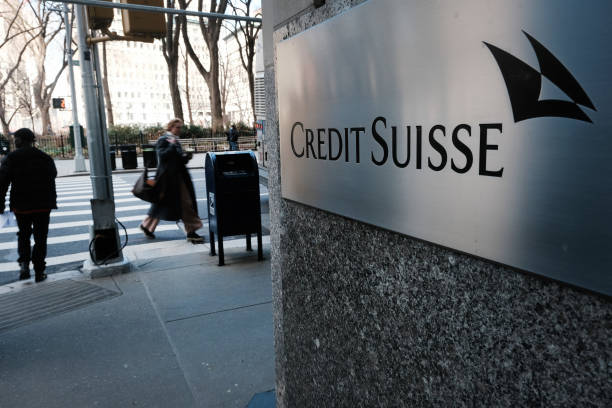Credit Suisse failed time and time again to learn the importance of risk management

The Credit Suisse saga should provide a warning for the whole sector: to be a good bank, you need patience and prudence more than sheer ambition and appetite for risk, writes Eliot Wilson
Like so many other innovations, Credit Suisse was born of the railways. It was founded in 1856 to fund the expansion of Switzerland’s rail network, and yesterday its Zürich neighbours UBS agreed to buy it for CHF 3bn ($3.2bn). The collapse of Silicon Valley Bank earlier this month had caused the financial markets to shudder, and when the chairman of Saudi National Bank, Ammar Al Khudairy, Credit Suisse’s largest shareholder, casually told a Bloomberg interviewer that his firm would “absolutely not” be investing further, the share price slid by a third. The Swiss government intervened and brokered this weekend’s all-stock deal.
Sometimes life comes at you fast. Credit Suisse is a big institution, with 50,000 staff worldwide and CHF 1.3 trillion of assets under management. But it would be dangerous to overemphasise the link with the problems of Silicon Valley Bank, because in truth Credit Suisse has been struggling for some years. It is interesting to read the signals coming from UBS about their plans for the new entity: Colm Kelleher, the Oxford-educated Corkman who has chaired UBS since last year, has already spoken of the need to “de-risk” Credit Suisse’s “tricky businesses”, and align its corporate culture with that of UBS. The investment arm of Credit Suisse will be wound down, as UBS already has that capability in its arsenal.
For many years, Credit Suisse had the reputational cloud of offering financial services to wealthy criminals and corrupt politicians including Ferdinand Marcos of the Philippines and Zaïre’s Mobutu Sese Seko. Expensive endorsement by Swiss tennis legend Roger Federer did not quite erase the stain, and being fined for money laundering for a Bulgarian cocaine ring last year did not help.
Moreover, there have been long-standing questions over Credit Suisse’s risk management, as it almost seemed to flirt with doubtful situations in an attempt to shrug off its staid cuckoo-clock image with its brasher, showier Wall Street friends. The bank lost $5.5bn in the collapse of Archegos Capital in 2021 (with a notional exposure of some $20bn), and its chief risk and compliance officer, Lara Warner, suddenly found herself with exciting new career options away from Credit Suisse and her risk and compliance functions split between different executives
The culture at Credit Suisse had been corrosive for some time. Warner’s regime had seen risk managers subjugated to tech gurus and a reliance on a toxic combination of not asking too many questions and depending on clever people to make clever decisions to squeak through a crisis. This was potentiated when, in the two years before the Archegos crisis in 2021, Credit Suisse saw 40 per cent of its senior managers depart. If you rely on muscle memory and the experience of battle, losing nearly half of your best people will undermine you fatally, as it turns out.
Is this a cautionary tale? Some will point to the fact that Credit Suisse weathered the global financial crisis without needing a bailout, unlike UBS—of course, an injection of Middle Eastern cash helped—but the scandals have been too frequent, too numerous, too embarrassing and too indicative of a culture which has let ambition overshadow prudence. Older readers will have uncomfortable flashbacks to the reckless trading of a young Nick Leeson at Barings. Credit Suisse should now be safe, in the short term, though the days of the brand may be numbered, but another stomach-lurching weekend has to provide a wake-up call for the whole sector: don’t be like Icarus. Icarus was not a good banker.